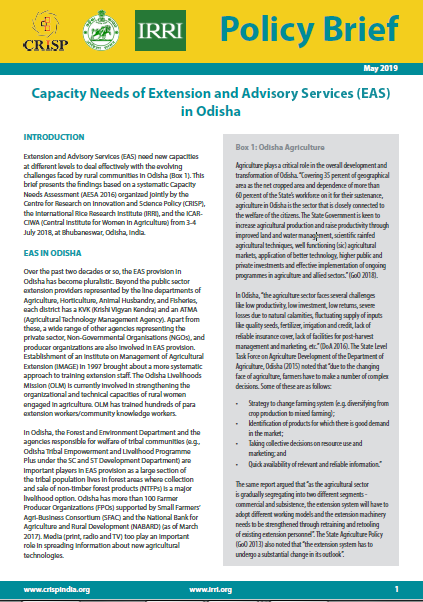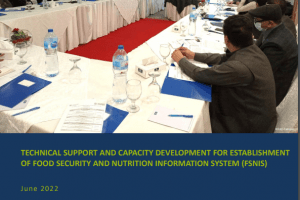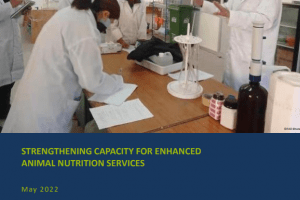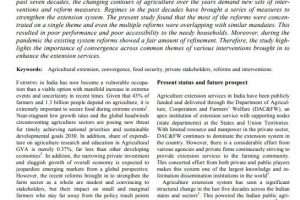Over the past two decades or so, the EAS provision in Odisha has become pluralistic. Beyond the public sector extension providers represented by the line departments of Agriculture, Horticulture, Animal Husbandry, and Fisheries, each district has a KVK (Krishi Vigyan Kendra) and an ATMA (Agricultural Technology Management Agency). Apart from these, a wide range of other agencies representing the private sector, Non-Governmental Organisations (NGOs), and producer organizations are also involved in EAS provision. Establishment of an Institute on Management of Agricultural Extension (IMAGE) in 1997 brought about a more systematic approach to training extension staff. The Odisha Livelihoods Mission (OLM) is currently involved in strengthening the organizational and technical capacities of rural women engaged in agriculture. OLM has trained hundreds of para extension workers/community knowledge workers.
In Odisha, the Forest and Environment Department and the agencies responsible for welfare of tribal communities (e.g., Odisha Tribal Empowerment and Livelihood Programme Plus under the SC and ST Development Department) are important players in EAS provision as a large section of the tribal population lives in forest areas where collection and sale of non-timber forest products (NTFPs) is a major livelihood option. Odisha has more than 100 Farmer Producer Organizations (FPOs) supported by Small Farmers’ Agri-Business Consortium (SFAC) and the National Bank for Agriculture and Rural Development (NABARD) (as of March 2017). Media (print, radio and TV) too play an important role in spreading information about new agricultural technologies.
Extension and Advisory Services (EAS) need new capacities at different levels to deal effectively with the evolving challenges faced by rural communities in Odisha. This brief presents the findings based on a systematic Capacity Needs Assessment (AESA 2016) organized jointly by the Centre for Research on Innovation and Science Policy (CRISP), the International Rice Research Institute (IRRI), and the ICAR-CIWA (Central Institute for Women in Agriculture) from 3-4 July 2018, at Bhubaneswar, Odisha, India.





Add Comment